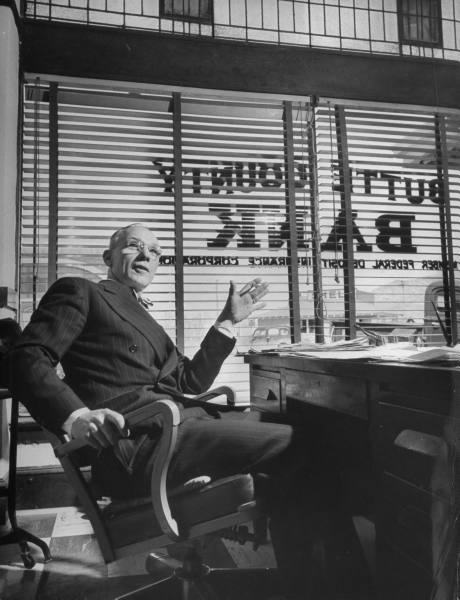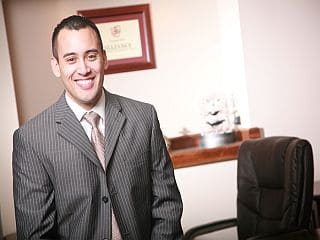
A loved one dies, and you receive a substantial inheritance.
You sell your business for a hefty price.
Maybe you even win the lottery.
Great news, right?
Well, it certainly can be. But suddenly coming into money can also be a problem you never thought would be a problem.
We’ve all heard stories of lottery winners who end up bankrupt or families who inherit a lot of money only to find themselves back in debt a few years later. What causes people to squander a financial windfall?
When it comes to dealing with this situation, AoM podcast guest and behavioral finance expert Daniel Crosby recommends the book Sudden Money by financial advisor Susan Bradley. According to Bradley, people bungle receiving a financial windfall for two big reasons.
The first is that emotions cloud people’s thinking, leading to poor decision-making.
If you inherit some money, you might be dealing with guilt and grief, which may cause you to unwisely give your money away as quickly as possible.
If your windfall came from selling a business that you spent years of your life building, you might feel depressed due to losing your sense of purpose and be tempted to spend your way out of your funk.
Besides dealing with the emotions that can accompany coming into a lot of money quickly, the other pitfall of sudden wealth is not knowing how to manage that much money.
If you’ve made $75,000 a year for most of your career and suddenly inherit $300,000 after the death of your parents, you might not know what to do with such a large lump sum.
Where do you put it? How do you invest it? What sort of taxes do you have to worry about?
Below, we offer some expert-backed advice on how to manage a financial windfall so that it remains a blessing rather than a curse.
Create a No-Decision Zone
As soon as you get a financial windfall, you’ll be tempted to start spending it immediately. Many people will also give you ideas about what you should do with your newfound money.
But these immediate decisions are typically based on fleeting emotions that can steer you the wrong way.
In Sudden Wealth: Blessing or Burden?, authors David Rust and Shane Moore highlight a family that won the lottery. Feeling over-the-moon happy, they quit their jobs and immediately bought cruise tickets for 72 (72!) of their family members, friends, and acquaintances. It wasn’t until they returned from their cruise that they realized that the money they won wouldn’t last as long as they thought it would and that they’d soon be running out of financial runway.
In her book, Susan Bradley highlights individuals who made similar impulsive decisions after getting a windfall. For example, when one man unexpectedly came into some money, he immediately decided to relocate. While the move was to a nice locale, in the process he cut himself off from friends and family. He ended up like Daniel Plainview in There Will Be Blood — a bitter recluse in a gilded cage.
To avoid making emotionally-driven financial decisions concerning your windfall, Bradley recommends creating a “No-Decision Zone.”
During this time, you’ll park your money in a money market account and let it sit there untouched for months or even up to a year.
The No-Decision Zone does several things.
First, it allows for any strong emotions you might be experiencing after getting the windfall to cool off so you can make better decisions.
Second, it gives you an excuse to deter ne’er-do-well relatives or acquaintances who might come knocking on your door to discuss “business opportunities” or ask for a “loan.” You can just tell them, “Sorry, I can’t do anything for you. I’m not making any decisions about this money right now.”
Third, it gives you time to establish goals and talk to a financial advisor about managing your financial windfall.
Your No-Decision Zone can last as long as you need it to. Don’t be in a rush to start using your money, and don’t let other people rush you. That’s how mistakes happen.
Find a Financial Advisor
After you’ve put your financial windfall into a money market account, look for a financial advisor, particularly one who specializes in helping people who’ve come into financial windfalls.
You’ll want to find a fee-only financial advisor. You pay this person a flat fee or by the hour for their advice and service. They don’t make their money selling you financial products like insurance. There’s less conflict of interest with fee-only financial advisors.
A financial advisor can help you navigate tax issues that might come with your newfound wealth. A big mistake that many people make in getting a financial windfall is that they spend it all without setting aside money for taxes. When the tax bill comes due, they have to dip into their retirement fund to get the cash to pay the taxman. Don’t be that guy! Depending on the type and amount of your financial windfall, your financial advisor may refer you to a tax specialist and attorney.
Build a Strong Financial Base
When you talk to your financial advisor, they’ll likely examine your overall financial picture to see how this windfall can improve your financial life. The first thing they’ll want to check is whether you’ve secured your financial base.
If you haven’t yet secured your financial base, you can use the windfall to do so by doing these two things:
Fund Your Emergency Fund. An emergency fund is money for when the s**t hits the fan. Direct a portion of your windfall towards your emergency fund. Depending on the amount of your windfall, aim to fund six months to a year of living expenses.
Pay Off Non-Mortgage Debt. A financial windfall is a great opportunity to become antifragile. Pay off your high-interest credit card and car loan debt first, followed by student loans.
Those two things will go a long way in leveraging your financial windfall to your advantage since you’re reducing the downside in your life. Always reduce downside when you can.
If you still have money left over after funding your emergency fund and paying off your non-mortgage debt, work with your financial advisor to set aside some of the windfall in your retirement account. If you don’t have a retirement account, a financial windfall is a great time to start one!
Set Aspirational Goals Based on Reality
After you’ve secured your financial base with your windfall, you can start getting aspirational. I talked to AoM podcast guest Nick Maggiulli about what he’d recommend after you’ve taken care of your financial base. Even though he’s the Just Keep Buying guy, Nick doesn’t necessarily recommend plowing all your windfall into investments. “If you’ve paid off your debt, have a fully funded emergency fund, and a solid retirement savings, ask yourself what your stretch goals in life are. What are your aspirations? What are the things that could give you deep fulfillment in your life, and how can you use this money to get there?” he advised.
Bradley recommends the same thing. She calls it creating your “Bliss List.”
Your bliss list could include:
- Paying off your mortgage
- Remodeling your home
- Fully funding your kid’s college education
- Starting a business
- Taking a bucket list vacation
- Buying a dream car
- Taking a sabbatical from work
- Going back to school yourself
- Early retirement
- Donating to organizations that are important to you
The sky’s the limit with your Bliss List. Don’t hold back!
After you’ve made your list, prioritize its entries in order of importance to you.
Then work with your financial advisor to reality check your goals. If you received a $300,000 inheritance from your parents, you might be able to pay off your mortgage, and that’s about it. If funding your kids’ college education and taking a bucket list vacation are also important to you, you’ll have to make trade-offs. Maybe instead of completely paying off your mortgage, you pay down $150k’s worth, split $100k between college funds for your two children, and use the remaining $50k to spend a year traveling the world.
If you want to take a sabbatical from work or retire early due to a significant financial windfall, your financial advisor, along with a tax advisor, can help you generate an investment plan that will help you ensure you’ve got enough money to make up for the fact that you’ll no longer be receiving a paycheck.
A financial windfall can transform your life. The biggest mistake is making decisions too soon after coming into sudden wealth due to volatile emotions. Create a No-Decision Zone and don’t do anything with your newfound money for a while. During that time, find a financial advisor, secure your financial base, and make a plan to put your windfall to good use.







